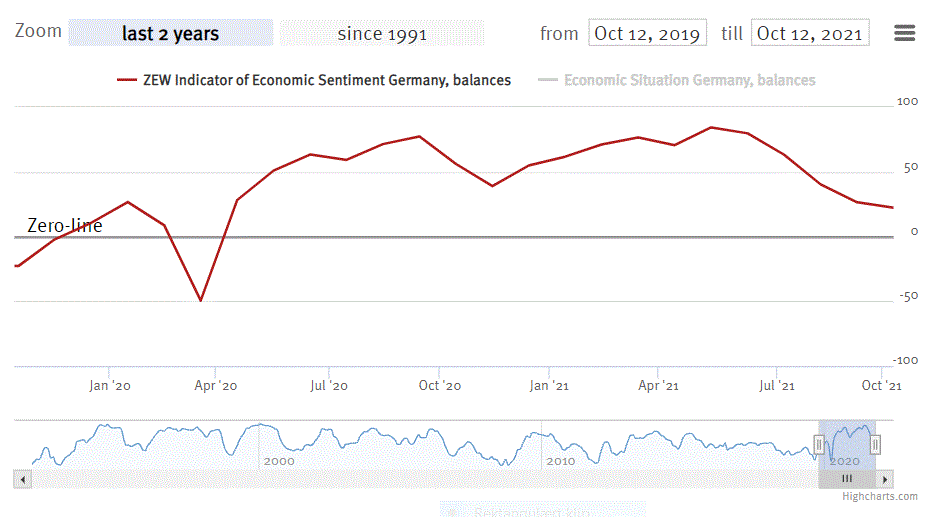For femte måned i træk er den såkaldte ZEW-indikator for den tyske økonomi faldet og blev i september målt til 22,3 point. Indikatoren måler holdningen i erhvervslivet og finanssektoren til økonomien, herunder forventningerne for fremtiden. Vurderingen af den aktuelle tilstand er også faldet. Det er flaskehalsproblemer og stigende energi- og råvarepriser, der skaber en negativ stemning, fordi det ventes at give lavere indtjening i virksomhederne, især i eksporterhvervene. Der er forventning om en stigende inflation.
Assessment of the Economic Situation and Expectations Worsen
The ZEW Indicator of Economic Sentiment Stands at 22.3 Points

“The economic outlook for the German economy has dimmed noticeably. The further decline of the ZEW Indicator of Economic Sentiment is mainly due to the persisting supply bottlenecks for raw materials and intermediate products. The financial market experts expect profits to go down, especially in export-oriented sectors such as vehicle manufacturing and chemicals/pharmaceuticals,” comments ZEW President Professor Achim Wambach on current expectations.
The financial market experts’ sentiment concerning the economic development of the eurozone also decreased for the fifth consecutive time, bringing the indicator to a current level of 21.0 points, 10.1 points lower than in the previous month. The indicator for the current economic situation in the eurozone fell 6.6 points to a level of 15.9 points compared to September.
Inflation expectations for the eurozone fell slightly. The inflation indicator stands at 17.1 points in October, 3.0 points lower than in the previous month. However, 49.1 per cent of the experts still expect the inflation rate to rise further in the next six months.











